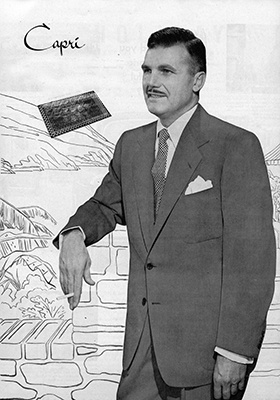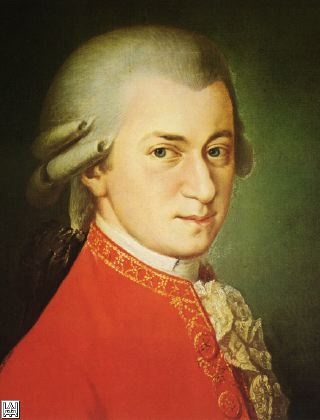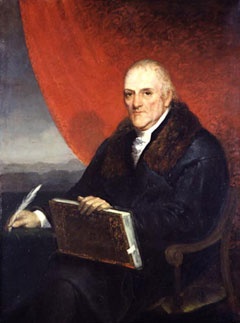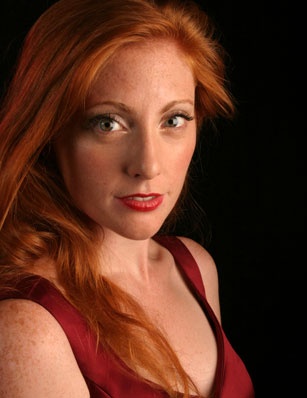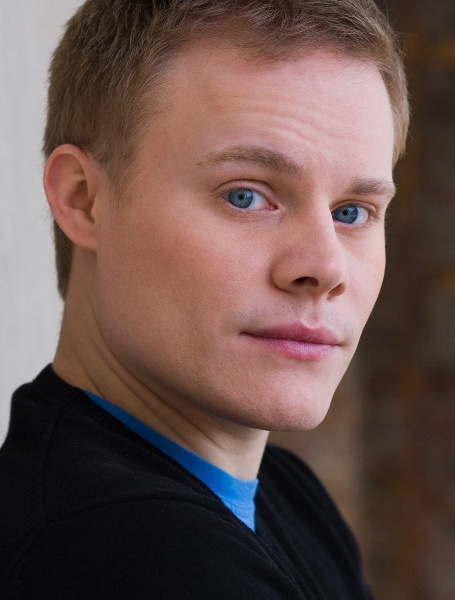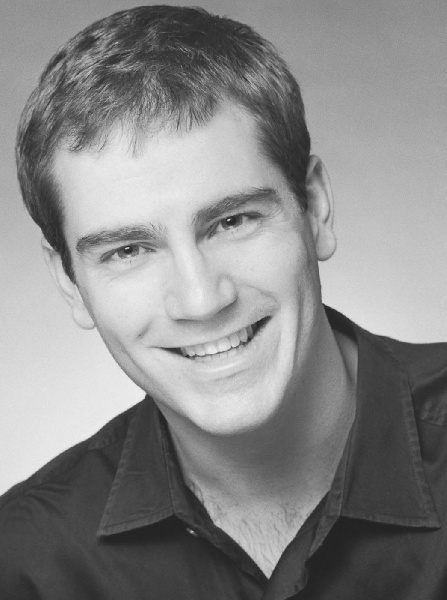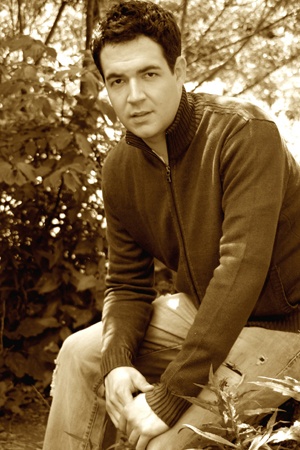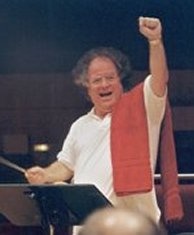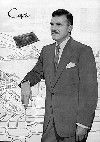Mozart-da Ponte: Cosi Fan Tutte at Tanglewood
James Levine, Ira Siff, and the TMC Opera Fellows in a splendid evening
By: Michael Miller - Aug 23, 2007
Tanglewood Music Center Vocal FellowsTanglewood Music Center Orchestra
James Levine conducter
Tanglewood, The Theater, Tuesday, August 14, 2007
Wolfgang Amadeus Mozart
Così Fan Tutte, ossia La Scuola degli Amanti, K. 588
dramma giocosa, libretto by Lorenzo da Ponte
Ira Siff, director
John Michael Deegan and Sarah Conly, design
Ferrando - Chad A. Johnson, tenor
Guglielmo - Matthew Worth, baritone
Don Alfonso - Giles Tomkins, bass
Fiordiligi - Layla Claire, soprano
Dorabella - Sarah Austin, mezzo-soprano
Despina - Kiera Duffy, soprano
Mozart's final collaboration with Lorenzo da Ponte, Così Fan Tutte, or the School of Lovers, as da Ponte preferred to call it, can, like a complaisant lover, go in multiple directions, or at least two, as far as modern performance is concerned. On the one hand it is a lively farce, open to whatever comic devices the stage director can invent (unless one understands it as a multivalent comédie de moeurs in the spirit of Hoffsmansthal, but perhaps that belongs to a bygone age), and on the other it is a concatenation of exquisite lyrical music, enhanced with the sonorities of mellifluous soprano and tenor/baritone duets and Mozart's transparent orchestral writing. Either way, it is an encyclopedia of amorous sentiments and postures, all immediately affecting, undercut primarily by context, stage action, and Don Alfonso's irony, until we get to Despina's broad comedy in the second act. However tempting it may be for an audience-conscious contemporary director, especially in this country, to jump into its farcical aspects with both feet, it is conceivably possible to bring both into balance. Over the years James Levine has shown a predilection for both, a passion for opera as theater as well as for musical perfection. In performances like his Meistersinger at the Met last season he brought this balanced ambition pretty much to perfection, although his Mozart operas can occasionally be a little dull, I find.
It was all for the better to hear Levine conducting a smaller orchestra in a smaller space, Tanglewood's wonderful Theater, and inspired, it seemed, by Ira Siff's brilliant and humane production. In this performance, undeniably focused on theatrical values and the spirit of farce, musical beauty had a fair enough chance, and it at least reached for an uneven, intermittent sort of balance in this thoroughly delightful evening. To borrow an overheard phrase from a fellow member of the audience, "This is how it should be."
At least for that particular evening, which was both enlightening and exhilarating.
The acoustics of the Theater are bright and clear, excellent for an operatic production, but in balance somewhat niggardly in the middle and lower registers. As Levine's sharply edged and energetic overture proceeded, I saw a whitewashed art deco/modernist structure, which suggested to my mind, somewhat ambiguously, the Malibu or upper Miami Beach of the 'fifties or the South Beach of today. Girls in sun dresses relax on lounge chairs at the right, while a white-jacketed waiter/bartender sets up in the "Café Mozart," at the left, where the story begins. Between them is an ample sitting room, filled with retro furniture, which could belong to either a house or a luxury hotel, and above it, connected by stairs. Ferrando is an ivy-league nerd (once again conjuring up the 1950's), complete with yellow waistcoat and bow tie, and Guglielmo is insufferably cool. Don Alfonso, complete with baggy white suit, broad-brimmed panama hat, and a pencil moustache, is a man of the world through and through, given to occasional tippling. A blonde WASPy Dorabella wore an discreetly rococo elaboration of the little black dress, while the more thoughtful, luxuriantly red-haired Fiordiligi favored more flowing garments. Only as the duet "Guarda, sorella..." began and Fiordiligi and Dorabella showed each other portraits of their fiancées on cell phones, that I realized we were in the present day. Ferrando and Guglielmo's faces are splashed up on the twin super-title screens. (No sense in being discreet about them in this production. In fact I found myself reading them for the extremely entertaining translation of the libretto into the language of contemporary twenty-somethings. Da Ponte would surely have given his characters that sort of voice if he were writing Così today.) The principal quartet are young and if not rotten, at least spoiled, hemmed in as they are by clothes, style, and gadgets. It is this insightful parallel between Bourbon Naples and today, which makes Ira Siff's production convincing, I believe, rather than the inherent universality of the story, as he says in his thoughtful program note. What else was there? Palm trees, a tropical dock, and the southern sky.
Ira Siff sees The School for Lovers as a comedy of inner transformation, and this transformation, this knowledge of love, comes through disguise. In da Ponte's libretto the young men disguise themselves as Albanians. In Siff's production this translates as "studs," a disguise less drastic for Guglielmo than for Ferrando. Despina the maid—and professor, or TA, depending on whether you regard Don Alfonso as faculty or administration—is a master of disguise, appearing as a physician and a notary (or paralegal, in this production, complete with Jewish accent). In her own persona, she wears a mountain of hennaed hair on her head, tight Capri pants, and stiletto heels, dressed for the street as she cleans the bathroom. As she lounges about the house, she reads a Hispanic tabloid. The young men in particular, once they put on their tight leather pants, open shirts, and bling-bling, embark on an adventurous exploration of their own sexuality. As they attempt to seduce each other's fiancées, they undergo a roller-coaster ride of conflicting emotions, as they slide from triumph to defeat, amusement at the success of their deception, and bitter disappointment as they grasp its consequences. As Don Alfonso takes charge at the very end, am I mistaken to understand that the couples come back together more in a spirit of "giving it another try," than of love stripped of its illusions?
I know I made one mistake, and that was to see this hilarious, wise production only once. In his program notes Siff underlines the fluidity of his approach to interpretation. In fact the TMC Così was presented by two casts of Tanglewood Vocal Fellows, encouraged by Siff to develop their own interpretations and performative solutions. This I find extremely sympathetic in principle, and I regret not fully experiencing the results. Also one evening TMC Conducting Fellow Kazem Abdullah led the performance, who brought the house down with a fiery reading of Bartók's Miraculous Mandarin Suite a few weeks ago, and that would have been worth hearing in itself. There is no doubt that in the few years he has been Music Director James Levine has brought the TMC opera program to the very highest level.
The young singers I saw on August 14 were all wonderful. They threw themselves into their director's challenges with all their imagination and energy. The level of operatic acting in this country today is truly extraordinary. (It is a pity that our government does not function on the same level.) In the first act Levine pushed the music along rather relentlessly, and this occasionally made things hard for some of them. For that matter Mozart's score would have benefitted for a chance to breath, and I could see no reason why the singers and the orchestra could not have supported it. Sarah Austin's clear, focused voice was most attractive in Dorabella, who came across as an elegant, possibly vapid young lady, proper enough, but ready to adapt to surprises. Among other outstanding moments Ms. Austin delivered a superb and keenly appreciated "Smanie implacabili." Canadian Layla Claire's beautifully balanced soprano, enriched with a seductive depth of tone, served her thoughtful characterization of the more serious, morally-minded Dorabella well. Particularly as the evening progressed, her voice warmed into a truly memorable resonance, and her expressively phrased and probing "Ei parti, sento!" and "Per pietà , ben mio, perdona" earned her a warm ovation from the audience. Ms. Claire is an outstanding young singer, and I would be surprised if we don't see her often on major stages in the future. Kiera Duffy is a gifted comic actress with a clean, well-controlled technique and a very pleasing voice, and she is not shy of putting it through serious gymnastics to achieve a characterization. Jewish humor apart, her version of Despina's disguises was not what one has heard time and time again. (In fact her physician, thanks to Sarah Conly, seemed custom-made for the Berkshires, a woman-healer in a baggy patterned cotton dress, pink woolen socks, Birkenstocks, plenty of ratty grey hair and an Indian headband.) To Ferrando Chad A. Johnson brought an attractive balanced tenor voice with a light upper register and a strong darker bottom, and Matthew Worth a rich nuanced baritone. Both put much enthusiasm and imagination into their complex double, actually triple roles, since their appearences in uniform (true blue American combat fatigues in this case) are also a ruse, even if they are in fact military officers. Both showed a high degree of musicality and good taste in their phrasing. Giles Tomkins, another Canadian, brought off his character well and sang pleasantly, although his voice and inflection were not terribly compelling, considering the distinguished singing actors who have sung the role. Both he and Chad Johnson suffered rather noticeably from vocal fatigue by the last third of the second act, but he acted his way through it most persuasively. Mr. Johnson showed impressive skill in managing his own problems. Even though some arpeggi and high notes slipped at points, he focused his control on the phrases which were most important musically and dramatically. Very little was lost, and he preserved the beauty of these passages. After a scene or two offstage he was ready to finish his part close to his peak.
The TMC orchestra played with its customary liveliness and impressive ensemble, and the instrumental solos were splendid. The continuo, with faculty member Howard Watkins at the harpischord, was vigorous throughout and indulged in some very amusing inventions. Although everyone made laudable efforts towards the kind of musical perfection from which the score clearly benefits, especially in the second act, when Levine relaxed the tempo for its the set-pieces of the second act, drama and humor won out, and happily so. Ira Siff's production, which never drew self-conscious attention to its own cleverness, brought Così's wit and psychology home to us, not only in contemporary style, but in a most sympathetic understanding of this problematic work. As a dramma giocoso it is cast in a light form, but contains complexities under the surface which we perhaps apprecate better in our present age than ever before. Lorenzo da Ponte was a man of the world. His memoirs show him as something of a cynic, not unlike Don Alfonso. His trilogy with Mozart began with Beaumarchais' Figaro, which ends in a moving scene of reconciliation. The second, Don Giovanni, ends with mixed contentment and a simple moralistic epigrammatic. The School of Lovers needs Don Alfonso, the architect, to impose the reuniting of the lovers as almost a deus ex machina and the humiliation of Despina, the builder, who takes it in good spirit.
Happy the man who takes
Everything in good part
And 'midst chance and circumstance
Lets himself be by reason led.
Let what makes others weep
Be for him a cause of laughter,
And in the world 'midst its tempests
He shall find a pretty peace.
Everything in good part
And 'midst chance and circumstance
Lets himself be by reason led.
Let what makes others weep
Be for him a cause of laughter,
And in the world 'midst its tempests
He shall find a pretty peace.
or
If you want to be happy
just relax,
No matter what ever happens
just sit back and think.
If other people take it hard,
just laugh,
and you'll find peace, man,
peace, in all this big mess of a world.
After all, Mozart was a Freemason, wasn't he?just relax,
No matter what ever happens
just sit back and think.
If other people take it hard,
just laugh,
and you'll find peace, man,
peace, in all this big mess of a world.
Web: http://michaelmiller.goodletters.net
e-mail: heliagoras@gmail.com

